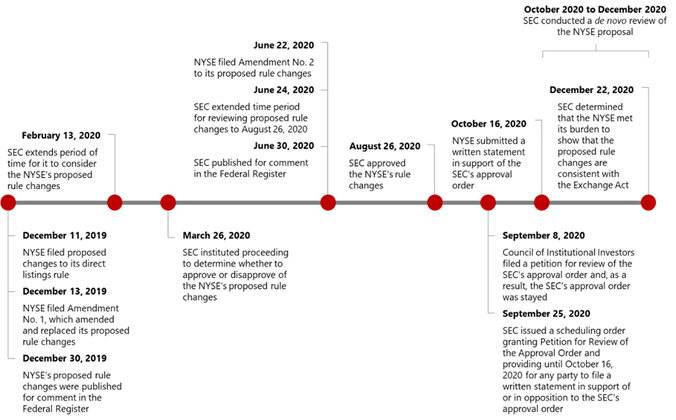Eleazer Klein is partner and Evan A. Berger is an associate at Schulte Roth & Zabel LLP. This post is based on their SRZ memorandum.
In April 2020, the NYSE initially adopted, and the SEC approved, a temporary waiver (“NYSE Waiver”) of certain NYSE stockholder approval rules set forth in Section 312.03 of the NYSE Listed Company Manual (“NYSE Manual”) in order to lessen the hurdles companies face when seeking to raise capital, as many needed to do during the COVID-19 pandemic. [1]
After a series of extensions of the NYSE Waiver (the latest through March 31, 2021), the NYSE is proposing to officially amend Section 312.03 of the NYSE Manual. The proposed rule change will now go through a notice and comment period, but, if adopted, will make permanent the following.
Rule 312.03(b) — The Related Party Stockholder Approval Rule, as amended, would:
